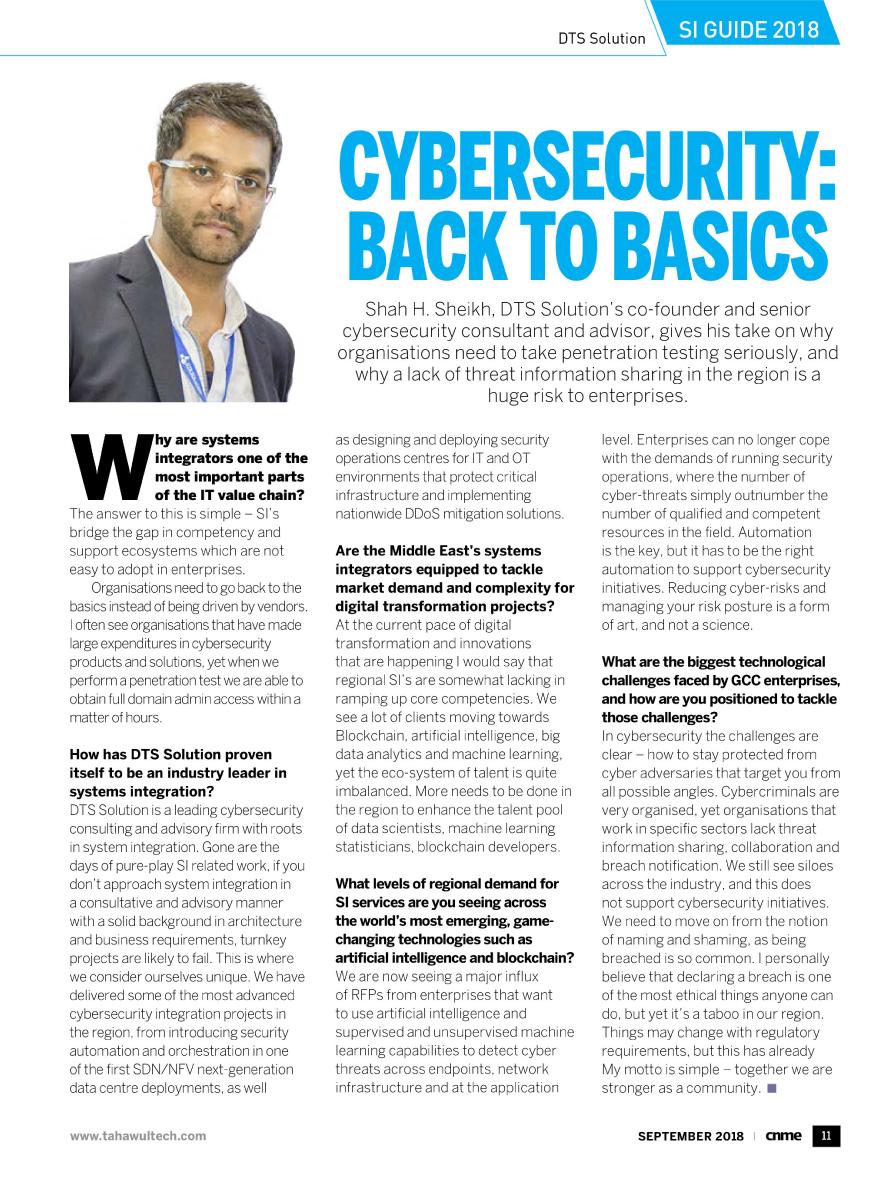Shah Sheikh, DTS Solution's Co-founder / Sr. Cybersecurity Consultant & Advisor, shares his take on why organizations need to take penetration testing seriously, and why a lack of threat information sharing in the region is a huge risk to enterprises.
DTS Solution is a leading cybersecurity consulting and advisory firm with roots in system integration. Gone are the days of pure-play SI related work, if you don’t approach system integration in a consultative and advisory manner with a solid background in architecture and business requirements, turnkey projects are likely to fail. This is where we consider ourselves unique. We have delivered some of the most advanced cybersecurity integration projects in the region, from introducing security automation and orchestration in one of the first SDN/NFV next-generation data centre deployments, as well as designing and deploying security operations centres for IT and OT environments that protect critical infrastructure and implementing nationwide DDoS mitigation solutions.
In cybersecurity the challenges are clear – how to stay protected from cyber adversaries that target you from all possible angles. Cyber criminals are very organised, yet organisations that work in specific sectors lack threat information sharing, collaboration and breach notification. We still see siloes across the industry, and this does not support cybersecurity initiatives. We need to move on from the notion of naming and shaming, as being breached is so common. I personally believe that declaring a breach is one of the most ethical things anyone can do, but yet it’s a taboo in our region. Things may change with regulatory requirements, but this has already. My motto is simple – together we are stronger as a community.
Shah Sheikh, DTS Solution's Co-founder / Sr. Cybersecurity Consultant & Advisor, shares his take on why organizations need to take penetration testing seriously, and why a lack of threat information sharing in the region is a huge risk to enterprises.
In cybersecurity the challenges are clear – how to stay protected from cyber adversaries that target you from all possible angles. Cyber criminals are very organised, yet organisations that work in specific sectors lack threat information sharing, collaboration and breach notification. We still see siloes across the industry, and this does not support cybersecurity initiatives. We need to move on from the notion of naming and shaming, as being breached is so common. I personally believe that declaring a breach is one of the most ethical things anyone can do, but yet it’s a taboo in our region. Things may change with regulatory requirements, but this has already. My motto is simple – together we are stronger as a community.
See also:


